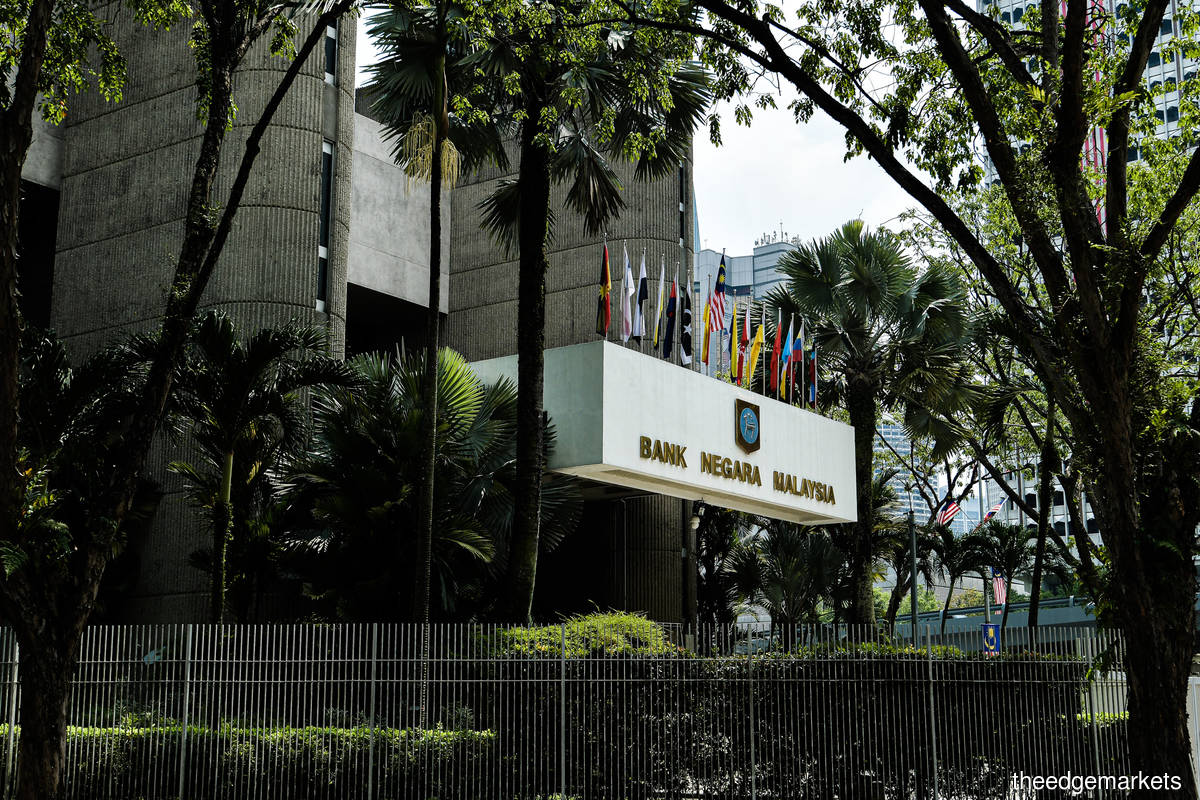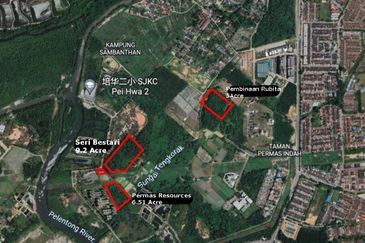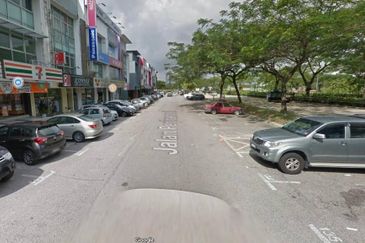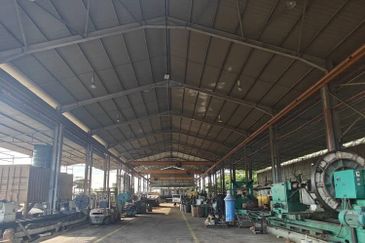
- The committee’s final interest rate hike of 2022 was in line with Bloomberg median economist expectations and marked the fourth consecutive 25bps hike of this year, translating to a year-to-date increase of 100bps.
KUALA LUMPUR (Nov 3): Bank Negara Malaysia’s (BNM) Monetary Policy Committee (MPC) has raised the overnight policy rate (OPR) by 25 basis points (bps) to 2.75% on Thursday (Nov 3).
The committee’s final interest rate hike of 2022 was in line with Bloomberg median economist expectations and marked the fourth consecutive 25bps hike of this year, translating to a year-to-date increase of 100bps.
This brought the ceiling and floor rates of the OPR’s corridor to 3% and 2.5% respectively, according to the central bank’s statement.
“Against the backdrop of continued positive growth prospects for the Malaysian economy, the MPC decided to further adjust the degree of monetary accommodation.
“The adjustment would also pre-emptively manage the risk of excessive demand on price pressures consistent with the recalibration of monetary policy settings that balances the risks to domestic inflation and sustainable growth,” BNM said.
BNM noted that with the latest OPR level, its stance on monetary policy remains accommodative and supportive of economic growth.
The central bank reminded that the MPC is not situated on any pre-set course, adding that monetary policy moves will continue to depend on the evolving conditions and implications on the overall outlook to domestic inflation and growth.
“Any adjustments to the monetary policy settings going forward would continue to be done in a measured and gradual manner, ensuring that monetary policy remains accommodative to support sustainable economic growth in an environment of price stability,” BNM added.
BNM said the latest indicators show that domestic economic activity strengthened further in the third quarter, driven primarily by robust domestic demand.
“Going forward, despite the challenging global environment, domestic demand will remain the key driver of growth. Household spending will continue to be underpinned by improvements in labour market conditions and income prospects.
“Tourist arrivals have increased following the reopening of international borders and will further lift tourism-related sectors. Investment activity and prospects will be supported by the realisation of multi-year projects,” the central bank said.
“Nevertheless, external demand is expected to moderate following softening global growth,” it added.
BNM explained that a combination of rising cost pressures, tighter global financial conditions, and China’s strict containment measures, which more than offsets the support from positive labour market conditions and the reopening of most economies and international borders, continues to weigh down the global economy.
The central bank said inflationary pressures were more persistent than expected due to strong demand, tight labour markets, and elevated commodity prices, despite improvements in global supply chains.
“Consequently, many central banks are expected to continue raising interest rates to manage inflationary pressures. In particular, continued aggressive adjustments in US interest rates and expectations of a higher terminal rate in the US, have contributed to a persistently strong US dollar environment,” BNM added.
The central bank noted that this has resulted in higher volatility in financial markets, affecting other major and emerging market currencies, including the ringgit.
“Despite bouts of heightened volatility in the global financial and foreign exchange markets, these developments are not expected to derail Malaysia’s growth,” BNM assured.
Moving forward, BNM said global growth will continue to face headwinds from tighter financial conditions amid elevated inflation in major economies and the domestic challenges in China, and remains subject to downside risks including escalation of geopolitical tensions, worsening of domestic headwinds in China and potential energy rationing in Europe.
Touching on inflation, BNM said Malaysia’s headline inflation has likely peaked in the third quarter of 2022 and is expected to moderate going forward, albeit at an elevated level.
Core inflation, meanwhile, is projected to average closer to the upper end of the 2% to 3% forecast range in 2022, according to the central bank, given some demand-driven price pressures amid the high-cost environments. Year-to-date, it has averaged 2.7%.
“Moving into 2023, headline and core inflation are expected to remain elevated amid both demand and cost pressures, as well as any changes to domestic policy measures.
“The extent of upward pressures to inflation will remain partly contained by existing price controls, subsidies, and the remaining spare capacity in the economy,” BNM said.
“The balance of risk to the inflation outlook in 2023 is tilted to the upside and continues to be subject to domestic policy measures on subsidies, as well as global commodity price developments arising mainly from the ongoing military conflict in Ukraine and prolonged supply-related disruptions,” the central bank added.
BNM also noted that the schedule of MPC meetings for 2023 has been approved, whereby they will convene six times — with a meeting in January, March, May, July, September and November, respectively.
Earlier, the US Federal Reserve’s (Fed) Federal Open Market Committee (FOMC) continued its campaign against inflation as it raised the US Fed Funds Rate by 75bps to 3.75%-4% after its meeting on Nov 1 and 2.
This came on the heels of a headline inflation print of 8.2% year-on-year for September, hotter than the expected 8.1%, and still a ways away from the US Fed’s 2% inflation target.
US Fed chair Jerome Powell said that the US Fed may slow down the pace of further tightening, Powell also noted that it may reach a higher-than-expected terminal rate as he said that the US Fed still had some ways to go to taming inflation.
TOP PICKS BY EDGEPROP

Taman Ria Jaya ( Industrial )
Sungai Petani, Kedah

28 Residence @ Beverly Heights
KL City, Kuala Lumpur

Afiniti Residences @ Medini Iskandar
Iskandar Puteri, Johor






















